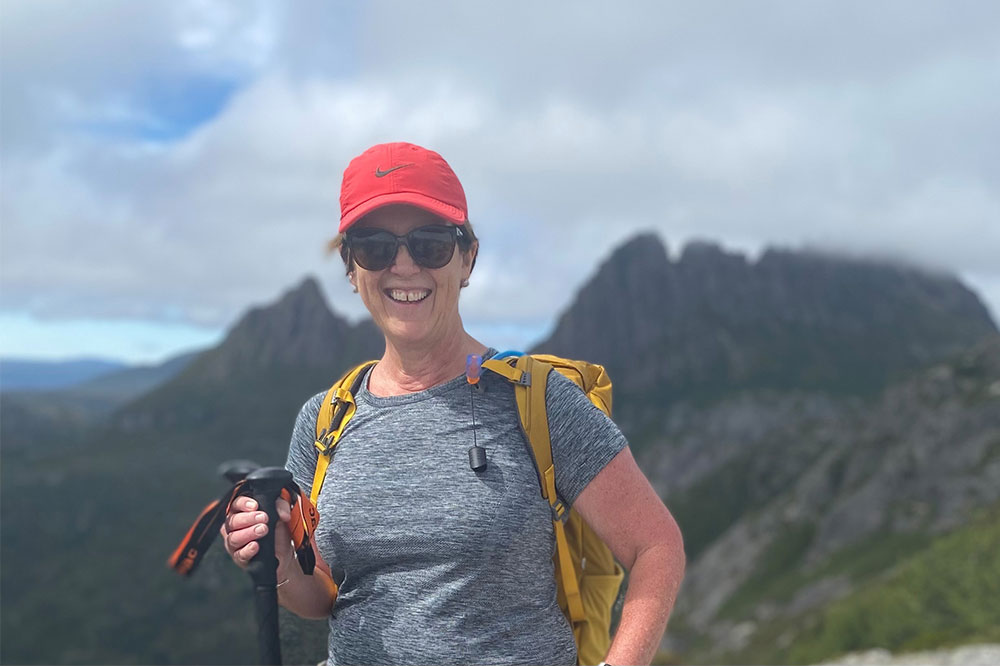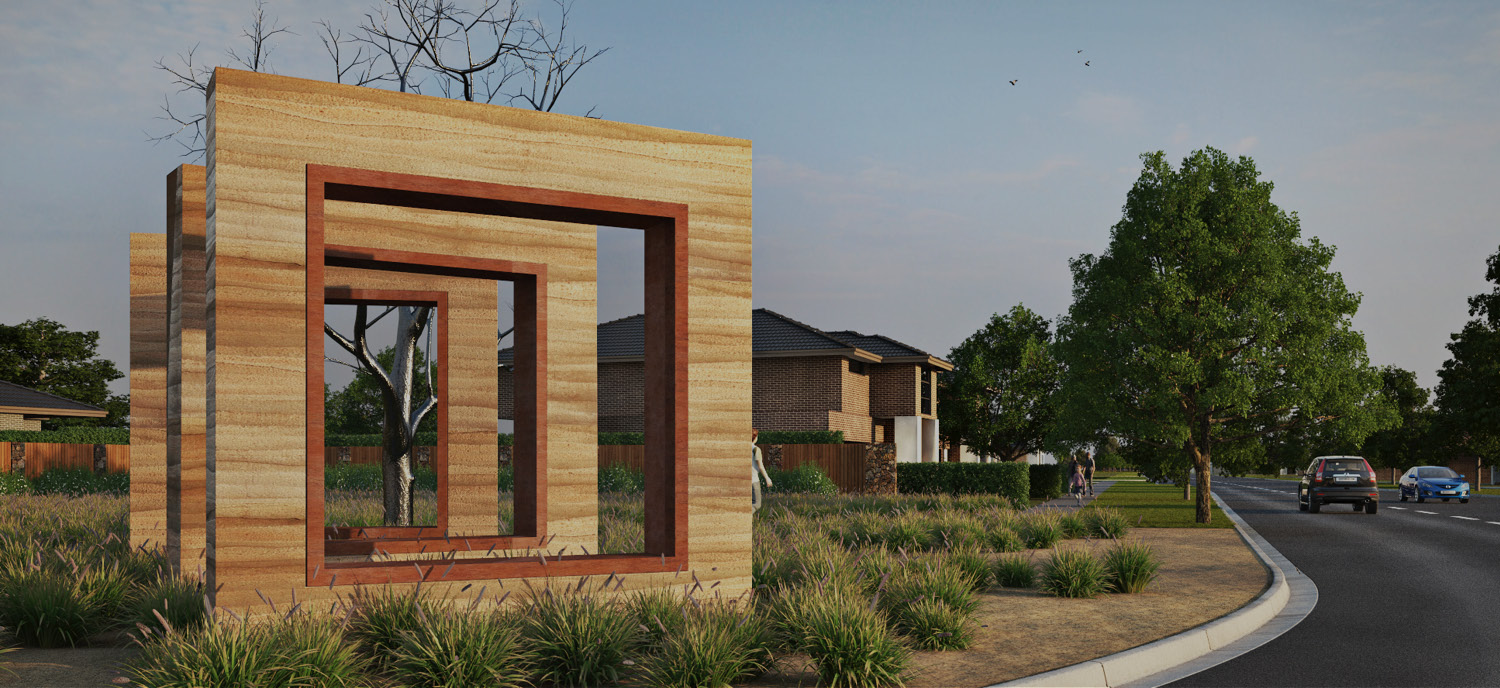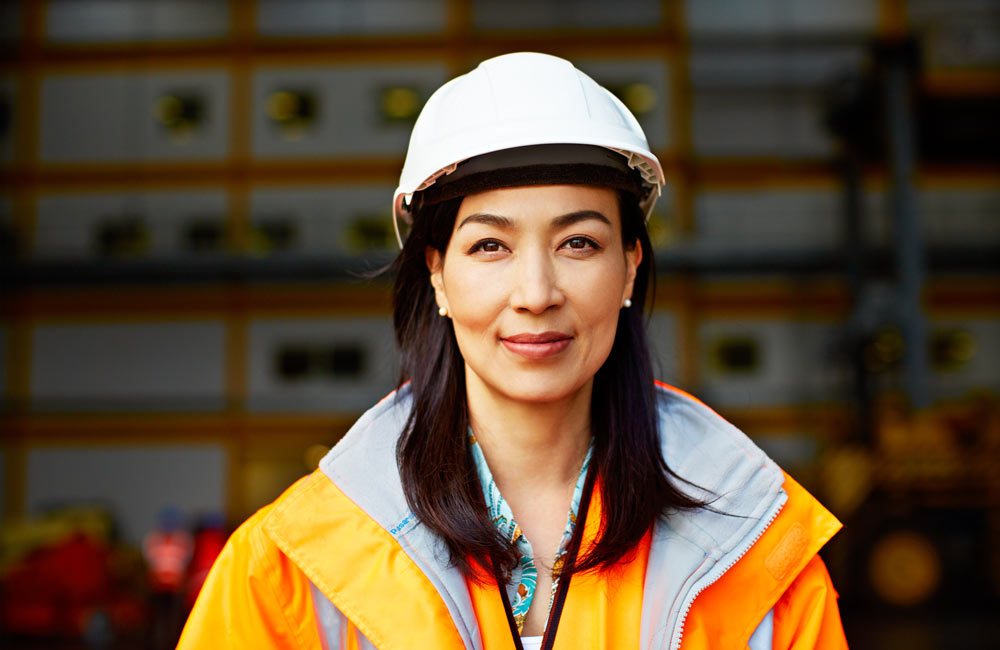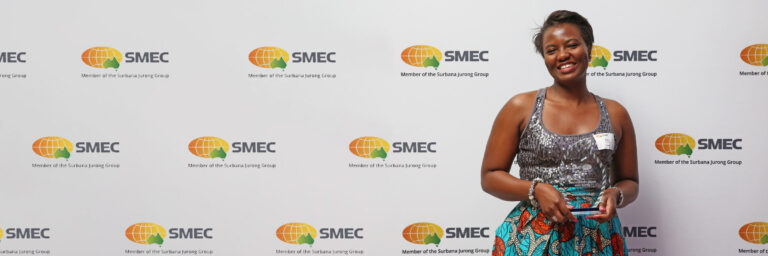

Logashri Sewnarian became the first woman to hold the position of Chief Executive Officer SMEC South Africa.
Know your worth
International Women’s Day is not only a chance to celebrate the outstanding achievements of women at SMEC, but an opportunity to consider unconscious bias—that is, when our brains make incredibly quick judgements of people and situations without realising.
Logashri was born and raised in South Africa during the Apartheid regime. Logashri’s experiences with racial and gender discrimination have shaped her perspective as a leader and continue to motivate her to foster a company culture that embraces diversity and inclusion.
“I am often overwhelmed by the inspiring contribution that the women at SMEC make daily in improving the lives of our communities and positively shaping the world around us,” she says. “As a society, I believe we need to challenge the unconscious assumptions we may harbour based on our socialisation, history, and culture in order to address the social injustices that many women still encounter today, irrespective of their social strata.”



“Continuous evidence-based learning, gender and social inclusion are critical to my institutional development, social and environment assessment and planning work,” says Libby Pahokski, Functional General Manager for SMEC’s Social Development and Environment Group in Southeast Asia and the Pacific.”
Make a positive impact
Although they are from different parts of the world, both Libby Paholski and Pawitasari Fransisca’s childhood experiences compelled them to pursue careers with a sociably responsible focus.
Growing up in the rural mining town of Broken Hill in Australia, Libby Paholski was exposed to the positive and negative social impacts of infrastructure projects as a young girl. This piqued her interest in sociology and sustainability, which shaped her career focus in minimising the impacts of developments on communities in Southeast Asia.
Pawitasari, was born and raised in a small town in East Java, Indonesia, with abundant natural resources. Witnessing the strain of urban development on her hometown as a young girl, prompted her to study environmental engineering at university. Today, Pawitasari works at SMEC in Indonesia on a nationally significant project developing energy infrastructure to improve waste management.

 After receiving her degree in environmental engineering, Pawitasari Fransisca, Water and Sanitation Specialist at SMEC in Indonesia, went on to specialise in water resource management at the University of Adelaide in Australia. She and her team at SMEC are dedicated to helping industries and institutions become more environmentally conscious.
After receiving her degree in environmental engineering, Pawitasari Fransisca, Water and Sanitation Specialist at SMEC in Indonesia, went on to specialise in water resource management at the University of Adelaide in Australia. She and her team at SMEC are dedicated to helping industries and institutions become more environmentally conscious.
Step-up to the challenge
Worldwide, women and girls face greater vulnerability and exposure to disasters and conflicts. Furthermore, their capabilities are often under-utilised, particularly in highly male-dominated industries. Despite her awards and many accolades, in the early days of her career, Pawitasari experienced gender inequality, especially while conducting fieldwork.
“I had to make sure my contribution mattered,” she says. “As women, we certainly had to go the extra mile to be able to take a lead role back then.”
Before joining SMEC in 2015, successful business development professional, Saima Bodla, experienced gender bias when she quit her professional life to have her first baby.
“I received even less support when I wanted to continue my job with passion and commitment,” she shares. “After the birth of my second son, in 2011, I faced social pressure to leave my job.”
”The key part of my life is balance. As Thanos said ‘perfectly balanced, as all things should be.”
-Saima BodlaPakistan

Saima Bodla, based in Pakistan, joined Engineering General Consultant as Manager Business Development in 2015 and contributed to achieve the targets of the firm and supported winning a mega project her first year joining.
Strive for balance
Across the board, the 2022 International Women’s Day Champions agree that striking a sustainable work life balance is critical to both personal growth and professional development.
As a high-achieving professional and a parent, Saima tries to balance her personal and professional life and juggles a variety of roles as a parent to her two sons.
“I not only hold down my day job, but also play the role of teacher for their studies, as a doctor for their health care and mentor for their emotional issues,” she says. “Then for my family, I play the roles of driver, cook, cleaner, care-taker, dishwasher, grocer, and accountant.” Saima says she continually strives for balance.


 Passionate about honouring diverse perspectives to drive a better future for us all, Raveena Grover, based in Australia, seizes opportunities to expand her understanding of socio-cultural and environmental issues. “I believe true sustainability not only requires effort from us all but means being inclusive of everyone,” she says.
Passionate about honouring diverse perspectives to drive a better future for us all, Raveena Grover, based in Australia, seizes opportunities to expand her understanding of socio-cultural and environmental issues. “I believe true sustainability not only requires effort from us all but means being inclusive of everyone,” she says.
Be inspired by role models
Having a strong role model often proves to be a key factor in supporting professional development. Libby, Florence Wambugu and Raveena Grover haven’t had to look further than their direct managers at SMEC for guidance.
Libby says her manager, Karen Atkinson (Deputy Chief Operating Officer for SMEC Southeast Asia and the Pacific) has great vision, and continually brings a fresh perspective, while Florence draws inspiration from her boss André van der Walt, whom she says encourages her and supports her to excel.
Raveena started with SMEC in Australia as a University of Technology Bachelor of Communications (Journalism) graduate in 2020 and was soon promoted to Advisor in the Communications and Stakeholder Engagement team.
Currently, Raveena is working to deliver important information about a sewerage project in Melbourne to business owners who speak languages other than English. Her team adapts to stakeholders’ needs by extending their roles to include door knocking and taking extra time to communicate where language barriers or lack of translation services exist.
“My manager, Alyse Phillips, has been instrumental in supporting my growth at SMEC over the last two years,” she says. “A constant champion for all wins big and small, work-related or personal, Alyse has fostered one of the most positive and encouraging workplace cultures I’ve experienced.
“Her guidance, along with the support of my team, has provided me with the confidence to deliver, within my role, to the best of my capabilities.”
 SMEC’s Karina Discaya, an Environmental Specialist in the Philippines, with 20 years of field experience, highlights the environment as a key stakeholder in project decision-making. She believes we can achieve a sustainable future by identifying environmentally sound practices.
SMEC’s Karina Discaya, an Environmental Specialist in the Philippines, with 20 years of field experience, highlights the environment as a key stakeholder in project decision-making. She believes we can achieve a sustainable future by identifying environmentally sound practices.
Appreciate other cultures
Understanding and leveraging diverse perspectives to shape a sustainable future often starts with an appreciation of different cultures.
Learning from Aboriginal knowledge is a vital part of Raveena’s personal and professional life, while Karina Discaya, an Environmental Specialist in the Philippines, also acknowledges the importance of observing different cultures in her role.
Helping her home country prosper through sustainable development, Karina has travelled extensively throughout the Philippines.
“In my work I conserve biodiversity by weighing up the social and economic impacts of development on people and communities,” she explains. “I ensure that we maintain the complex interactions between differently affected ecosystems throughout a project’s delivery and into the future.”
Never stop learning!
Florence Wambugu, SMEC’s Section Manager for Power and Energy in East Africa has 19 years of professional experience.
Florence is a civil engineer, project management professional and self-confessed soccer mum. She continues to seize opportunities to expand her knowledge, especially in the areas of sustainability and emerging technologies.
“I assess future trends and opportunities that create early-mover advantages while fostering strategic alliances and partnerships that are crucial to delivering projects in Sub-Saharan Africa,” says Florence. “Here, poor infrastructure and the impacts of climate change pose significant challenges.
“Be the best you can be (put in the time to better yourself) and take your seat at the table…always be on the lookout for opportunities.”
Related
insights
 Women in Urban Design lead the way
Women in Urban Design lead the way
I am pleased to report that I have just been selected for the UDIA Women in Property Committee for the 2018-2020 season.
 IWD2022: Women at SMEC shine bright
IWD2022: Women at SMEC shine bright
Seven inspiring and influential women who work at SMEC, Logashri Sewnarian, Libby Paholski, Pawitasari Fransisca, Florence Wambugu, Raveena Grover (pictured), Karina Discaya and Saima Bodla, champion International Women’s Day 2022.
 What advice would you give your younger self? SMEC’s women in engineering reflect on their career journeys
What advice would you give your younger self? SMEC’s women in engineering reflect on their career journeys
Reflecting on Women’s Month in South Africa, SMEC South Africa celebrates their very own women in engineering - inspiring females who are not only transforming our built environment but leading the way for the next generation of female engineers.





